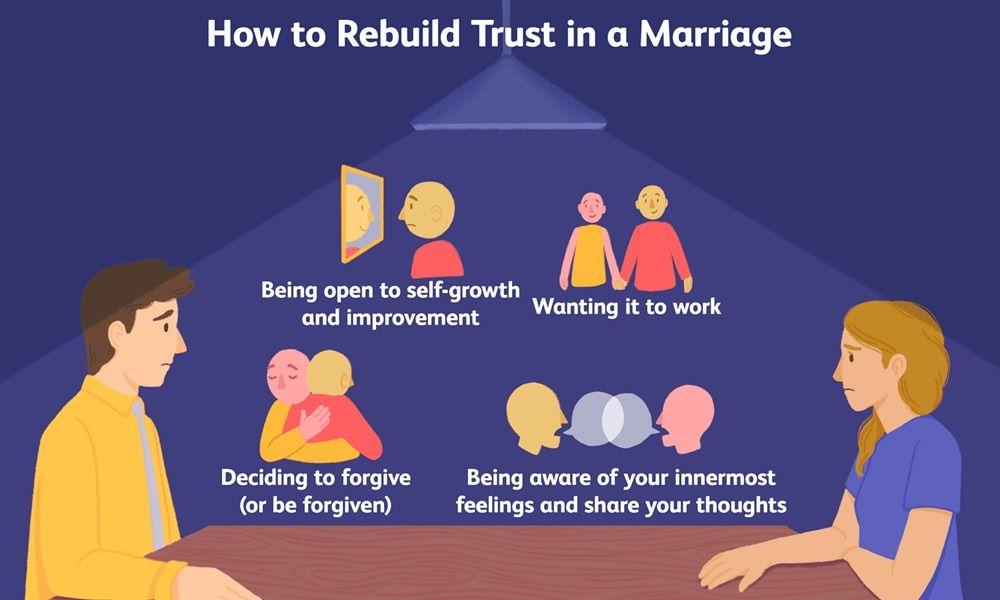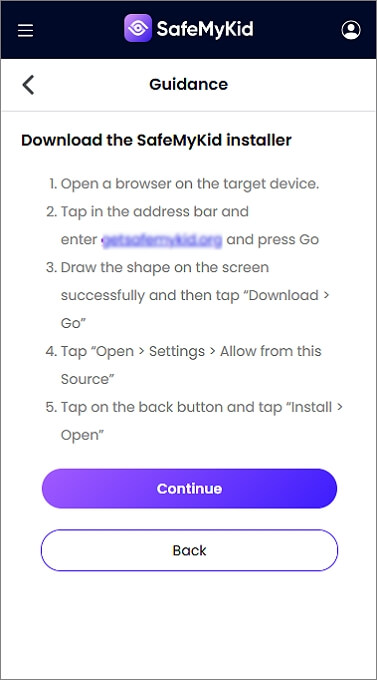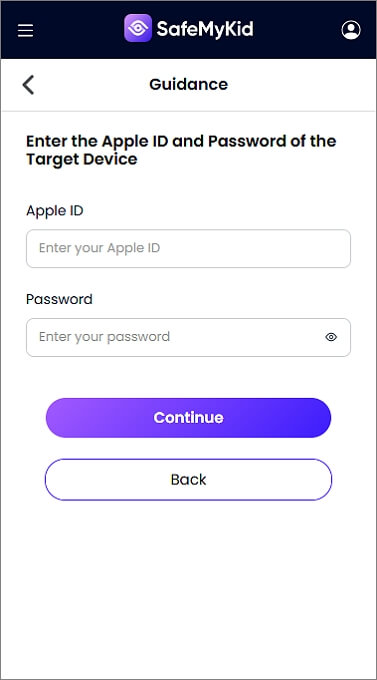Do Cheaters Ever Change? 6 Proven Ways Cheaters Can Change Their Ways

Infidelity is one of the most painful betrayals in any relationship. It shakes the foundation of trust, causes emotional turmoil, and often leaves the betrayed partner questioning everything—especially asking themselves “do cheaters ever change?”
This article explores the psychology behind infidelity, the steps necessary for a cheater to genuinely change, and how couples can navigate the path toward rebuilding trust. If you’re wondering whether your partner—or even yourself—can truly change after infidelity, read on to find out.

Why Do People Cheat?
Cheating is one of the most painful betrayals in any relationship, and yet it remains a common occurrence across cultures and societies. But why do people cheat? The answer isn't always simple. Infidelity is rarely just about sex—it often stems from deeper emotional, psychological, and situational factors.

1. Emotional Dissatisfaction and Neglect
Many people cheat because they feel emotionally unfulfilled in their relationships. When emotional intimacy fades, one partner may seek attention, affection, or validation elsewhere. This is particularly common in long-term relationships where communication has broken down, leading to feelings of loneliness even when two people are physically together.
2. Seeking Novelty and Excitement
Some people cheat not because they are unhappy, but because they crave excitement. The thrill of the chase, the secrecy, and the feeling of being desired by someone new can be intoxicating. This is particularly common among those who struggle with routine and monotony in long-term relationships.
3. Personal Insecurities and Self-Esteem Issues
Cheating can sometimes be a way for individuals to cope with their own insecurities. A person with low self-esteem may use affairs as a way to feel more attractive, desirable, or validated. The attention and admiration they receive from someone new can serve as a temporary ego boost.
4. Opportunistic Infidelity
Not all infidelity is premeditated. Sometimes, people cheat simply because an opportunity presents itself, and they lack the self-control or boundaries to resist temptation. This is often the case with workplace affairs, travel-related cheating, or situations where alcohol lowers inhibitions.
5. Commitment Issues and Fear of Intimacy
People who struggle with commitment may cheat as a subconscious way to sabotage their relationships. This can stem from deep-seated fears of intimacy, abandonment, or vulnerability. Rather than fully investing in one partner, they keep their options open as a form of emotional self-protection.
6. Revenge and Relationship Resentment
In some cases, people cheat as an act of revenge or retaliation. If one partner feels hurt, betrayed, or emotionally neglected, they may engage in infidelity as a way to "get back" at their significant other. This type of cheating is more about power and control than passion or emotional connection.
7. Sexual Dissatisfaction or Unmet Needs
A lack of physical intimacy or mismatched sexual desires can also contribute to infidelity. If one partner feels sexually unfulfilled, they may seek satisfaction outside the relationship rather than addressing the issue with their significant other.
8. Narcissistic Traits and Entitlement
Some people cheat simply because they feel entitled to do so. Individuals with narcissistic traits may believe that rules don’t apply to them or that they deserve more than one partner. They may lack empathy for their significant other and prioritize their own desires above the well-being of their relationship.
Are Some People More Prone to Cheating Again?
Not everyone has the same likelihood of cheating again. While cheating is ultimately a choice, certain personality traits, upbringing, and environmental influences can make someone more prone to cheating again.
- Attachment styles – People with avoidant attachment styles may struggle with emotional closeness and be more likely to engage in affairs.
- Impulsivity – Those with impulsive tendencies or a history of reckless decision-making may cheat again without fully considering the consequences.
- Past experiences – Someone who grew up witnessing infidelity in their family might be more likely to normalize it.
- Narcissistic traits – People with narcissistic tendencies may feel entitled to multiple partners or lack empathy for their significant other.
- Peer influence – Social circles that encourage infidelity or dismiss monogamy can increase the likelihood of cheating behavior.
These factors don’t excuse cheating but highlight the importance of self-awareness and personal growth in preventing infidelity. If someone is serious about changing, they must recognize and work on these underlying traits.
6 Proven Ways Cheaters Can Change Their Ways
Someone who cheated due to temporary dissatisfaction or emotional immaturity may be able to reform with effort. However, chronic cheaters—especially those who cheat due to deep-seated personality traits—are far less likely to change. Let’s look at 6 ways cheaters can change their ways
1. Understanding the Root Causes of Infidelity
Many people assume that cheating happens purely due to lack of love or attraction, but infidelity is often much more complex. Identifying the underlying reasons behind cheating is crucial in determining whether change is possible.

Emotional Dissatisfaction
When emotional needs aren’t met in a relationship, some individuals seek validation elsewhere. This is especially common in long-term relationships where communication may have weakened over time. Instead of addressing issues with their partner, a person may turn to someone who offers attention, admiration, or emotional support.
Lack of Communication and Conflict Resolution
Unresolved conflicts and poor communication can push partners apart, making them more vulnerable to infidelity. If one or both partners feel unheard, dismissed, or disconnected, they may look outside the relationship for understanding or escape.
Personal Insecurities and Low Self-Esteem
Some people cheat not because they are unhappy in their relationship but because they are insecure about themselves. Seeking validation from multiple sources can provide a temporary ego boost, but it often stems from deeper self-worth issues.
Opportunity and Lack of Boundaries
Some instances of cheating occur simply because the opportunity arises, and the person lacks strong boundaries or self-control. Alcohol, peer influence, or even work environments where infidelity is normalized can contribute to reckless decision-making.
2. Acknowledging the Betrayal and Taking Responsibility
For real change to happen, the cheater must first fully acknowledge the pain they’ve caused. Denying, minimizing, or justifying their actions only makes healing harder for both partners.

Genuine Remorse vs. Regret
There is a difference between remorse and regret:
- Regret is feeling sorry for getting caught.
- Remorse is feeling sorry for the hurt they’ve caused.
A cheater who truly wants to change will express deep remorse and take full accountability without making excuses.
Voluntary Admission vs. Getting Caught
Those who confess their infidelity voluntarily tend to have a higher chance of changing compared to those who only admit it after being caught. A willingness to be honest—even when it’s difficult—indicates a genuine desire for transformation.
3. Seeking Professional Help
Therapy can be a powerful tool in addressing both personal and relational issues that contribute to infidelity.

Individual Counseling
For cheaters who struggle with commitment issues, self-esteem, or impulsive behavior, personal therapy can help them understand their triggers and develop healthier coping mechanisms.
Couples Therapy
For those trying to rebuild their relationship, couples therapy can facilitate open conversations, help set boundaries, and provide a structured way to address broken trust.
4. Demonstrating Consistent Transparency
Rebuilding trust requires openness and transparency. A partner who is truly committed to change will willingly offer reassurance rather than resist accountability.

Being Open About Daily Activities
- Sharing plans for the day
- Checking in regularly
- Being honest about social interactions
Providing Access to Devices and Accounts
While privacy is important, offering access to phones, social media, and emails (if the betrayed partner needs reassurance) can show commitment to honesty. This doesn’t mean constant surveillance, but rather a temporary measure to rebuild trust.
5. Implementing Behavioral Changes
Words mean little without actions. A cheater who wants to change must demonstrate it through consistent effort.

Avoiding Triggers and Temptations
- Cutting ties with past affair partners
- Avoiding situations that led to infidelity
- Establishing clear boundaries with co-workers, friends, or exes
Strengthening the Relationship
- Prioritizing quality time
- Addressing issues before they escalate
- Creating new, positive relationship habits
6. Rebuilding Trust Over Time
Trust isn’t restored overnight. It requires patience, effort, and emotional resilience.

Keeping Promises
Small, consistent actions—like being reliable and honest—help repair broken trust.
Being Patient with the Betrayed Partner
A cheater who truly wants to change must understand that their partner may have doubts, moments of insecurity, and emotional triggers. Instead of getting defensive, they must offer reassurance and support.
Utilizing SafeMyKid to Help Cheaters Change and Never Cheat Again
In today’s digital world, tools like SafeMyKid can help rebuild trust by offering reassurance without constant suspicion.
Trust is the foundation of any healthy relationship, and when it’s broken due to infidelity, rebuilding it requires effort from both partners. While open communication and emotional work are the best ways to restore trust, technology can sometimes provide an additional layer of reassurance.
SafeMyKid, originally designed as a parental monitoring app, offers features that can be useful for couples who want to maintain transparency and accountability in their relationship.

Main Features of SafeMyKid that Enable You to Monitor a Changed Cheater
SafeMyKid provides a non-invasive yet effective way to foster transparency between partners without crossing the line into unhealthy surveillance. Some of its key features include:
- Real-Time Location Tracking – Allows partners to share their whereabouts for accountability and reassurance. This can help rebuild trust if one partner has a history of dishonesty about their location.
- Activity Monitoring – Provides insights into phone usage, including app activity and time spent on different platforms. While not designed for spying, this feature can help ensure openness and honesty in a relationship.
- Call and Message Logs – SafeMyKid allows monitored access to call history and messages (within ethical and legal boundaries), helping partners maintain transparency regarding communication habits.
- Geofencing Alerts – Partners can set up trusted locations and receive alerts when one leaves or enters those areas, adding an extra layer of trust.
How to Use SafeMyKid for Trust-Building After a Cheater Changes
If both partners agree to use SafeMyKid as a transparency tool, it should be framed as a mutual agreement rather than a means of control. Below are simple steps to set it up on Android and iPhone devices:
How to Build Trust on Android After a Cheater Changes
Step 1. Sign up
Create a free account for SafeMyKid.

Step 2. Install the app
Download and install SafeMyKid on the partner’s phone. This step is necessary for monitoring on Android devices.

Step 3. Monitor the activity of the changed cheater on Android
Use the online dashboard to check location, app usage, and other permitted features to ensure your partner doesn’t cheat again.

How to Build Trust on Android After a Cheater Changes
Step 1. Sign up
Register an account on the SafeMyKid platform.

Step 2. Configure settings
Instead of installing an app, SafeMyKid integrates with iCloud for monitoring. Ensure you provide your partner’s iCloud details.

Step 3. Start monitoring a changed cheater’s activities on iPhone
Log into the SafeMyKid dashboard to access permitted data, including location and phone activity.

Why Choose SafeMyKid to Monitor Your Changed Cheating Partner?
Unlike invasive spyware or unhealthy tracking methods, SafeMyKid provides a balanced approach to rebuilding trust. Here’s why it stands out:
- Encourages Transparency, Not Surveillance – The app is designed for mutual agreement and can be used as a trust-building tool rather than a way to control or invade privacy.
- User-Friendly Dashboard – The intuitive interface makes it easy to check locations and activity logs without excessive complexity.
- Helps in Gradual Trust Restoration – Partners who have broken trust can use SafeMyKid as a temporary measure until transparency becomes second nature again.
- Works on Both Android and iPhone – Unlike many monitoring tools, SafeMyKid provides seamless compatibility across devices, making it a convenient option.
Important Considerations
While SafeMyKid can be a useful tool for rebuilding trust, it should never replace honest conversations and relationship work. Relying solely on an app to monitor a partner’s behavior can lead to further damage if trust is not genuinely being rebuilt. It’s essential that both partners consent to its use and see it as a step toward openness rather than surveillance.
Using SafeMyKid should be temporary, allowing the relationship to transition back into one built on genuine trust rather than monitoring.
5 Signs Cheaters Will Cheat Again & You Need to Know
While some cheaters genuinely regret their actions and commit to change, others fall into a cycle of repeated infidelity. If you're wondering whether a cheater is likely to cheat again, here are five key warning signs:
1. Lack of Genuine Remorse
Cheaters who are truly sorry take full responsibility for their actions, express genuine guilt, and actively work to regain trust. If someone dismisses their betrayal, blames their partner, or downplays the impact, it's a red flag that they may not see cheating as a serious issue.
2. A History of Infidelity
Past behavior often predicts future actions. If someone has cheated in multiple relationships or has a pattern of lying and betrayal, they are more likely to repeat the same behavior. Serial cheaters tend to view infidelity as an acceptable solution to relationship dissatisfaction.
3. Secretive or Suspicious Behavior
Someone who has truly changed will be open and transparent about their actions. If they still hide their phone, delete messages, use secret accounts, or act defensively when asked about their whereabouts, they may still be engaging in dishonest behavior.
4. Lack of Effort to Rebuild Trust
Rebuilding trust after cheating requires time, effort, and consistency. If a cheater avoids accountability, refuses open communication, or dismisses their partner's concerns, they are likely not committed to real change. Without genuine effort, old patterns often resurface.
5. Thrill-Seeking or Commitment Issues
Some people cheat because they crave excitement, validation, or novelty. If they show signs of commitment issues, frequently flirt with others, or seem addicted to the thrill of secrecy, they may struggle to stay faithful even if they claim they have changed.
Conclusion
So, do cheaters ever change? The answer depends on the individual.
Those who cheat due to situational factors and genuinely regret their actions can change—if they put in the effort.
Those who have a pattern of repeated infidelity or lack remorse are less likely to change.
Change is possible, but it requires self-awareness; consistency in behavior; and patience and accountability.
For couples willing to work through the pain, healing and trust are possible. However, each situation is unique, and every individual must decide whether rebuilding the relationship is worth the effort.


